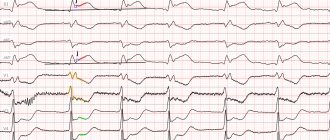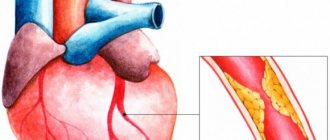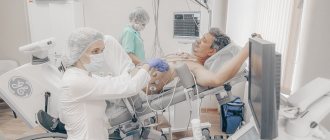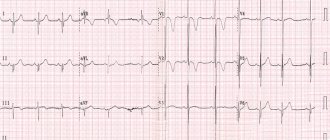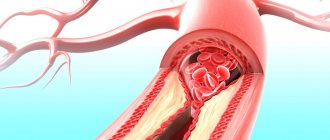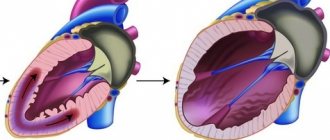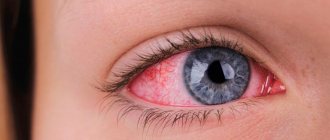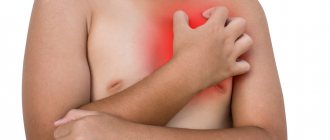Shot on goal and... on the heart
It doesn’t matter whether a person lives in a rich or poor country, what nation or race he belongs to - stress has the same bad effect on everyone. It does not play a big role which event causes the experience. The main thing is that it is significant for a particular person.
Related article What symptoms may indicate heart problems? Few people will be surprised that after the earthquakes that occurred in Japan in 2011, the number of strokes in this country increased sharply. But sometimes more peaceful events, for example... football, lead to a similar result. So, in 1996, the Danish team was defeated at the European Championships - and in the next few days, the death rate from heart attacks among men increased 14 times. And when England lost to Argentina in a penalty shoot-out in 1998, hospital admissions for heart attacks among English people increased by a quarter. And again, this only affected representatives of the stronger sex. For women, football was not so important, and they did not take it to heart.
But for the hearts of representatives of the fair sex, as studies show, an unfavorable situation in the family poses a danger. As for problems at work - too high demands from superiors, insufficient remuneration for work, conflicts in the team - they negatively affect both women and men.
How to help your heart cope with stress
There are three main areas: learning to control your immediate reaction to stress, reducing the number of stressors in your life, and adjusting long-term coping mechanisms.
Taming the tonsil.
Implementing this idea, presented in the title of a book by neuroscientist John Arden, is not easy. The problem is that the amygdala is part of the limbic system of the brain, which works like a stimulus-response machine and is not subject to conscious control. Only the brain itself can “tame” it if, at a moment of stress, you give other elements of the limbic system a stimulus, in response to which they will automatically extinguish its excitation. Here are the three easiest ways.
- Dip your face in cold water. This will trigger the diving reflex common to mammals. Having decided that you are diving, the brain will instantly slow down your heart rate and hold your breath to save air, and will also constrict peripheral blood vessels to redirect blood from the muscles to the internal organs, which will relieve increased stress on the heart.
- Take a breather. Due to the acceleration of the pulse during stress, there is often a feeling of lack of oxygen, and this increases anxiety and excites the amygdala. To calm her down, inhale and exhale through your nose for five to six seconds without pausing.
- Turn on the light. In the dark and in dim light, the amygdala is most active. Research has shown that bright lighting causes a sharp decrease in arousal in the amygdala while simultaneously increasing its “functional connectivity” with the ventromedial prefrontal cortex, an area responsible for the conscious control of emotions.
Controlling stress triggers.
Eliminating all stressors from life is an impossible task, says Dmitry Sumin. But the amygdala has two activation pathways. In addition to external stimuli, which are most often beyond our control, internal signals - our own disturbing thoughts - can also excite her. It is possible to control them. “For example, when you lose a lucrative job, you initially automatically perceive it as a disaster. However, if you start focusing on new opportunities and experiences—on the fact that you can spend time with your family or finally go somewhere you’ve always dreamed of—then your stress level will noticeably decrease,” says Dmitry. How it works?
- At the moment of excitement, instead of panicking thoughts of “everything is lost” or “I’m going to be fired,” try to concentrate on the awareness that you are stressed. This will shift the center of neural activity from the amygdala to the prefrontal cortex, which is responsible for control and planning.
- Through an effort of will, switch from the problem that causes the stress reaction to solving any other task that requires mental effort. This may be difficult at first, but research shows it can activate the prefrontal cortex and inhibit the firing of the amygdala.
Correction of coping strategy.
There are eight universal ways to adapt to stress: confrontation, distancing, self-control, suppressing emotions, seeking social support, escaping from a problem, planning a solution, reevaluating and taking responsibility. Their peculiarity is that within each there are possible positive and negative options. For example, to escape from a problem, you might smoke a pack of cigarettes or go for a run. To distance yourself from a problem, you can procrastinate, delaying its solution and increasing hidden anxiety, or meditate. You can evaluate your coping strategies yourself using an online test. But to correct them, it is still worth contacting a specialist. Cognitive behavioral therapy has proven itself well here. And it's better to do it in advance. “During rehabilitation after a stroke or heart attack,” says Dmitry Sumin, “many patients regret that they did not start working on reducing their stress levels earlier.”
Total unrest
Even more significant risk factors are anxiety and depression. The COORDINATE study conducted by Russian cardiologists showed that the presence of anxiety in a person increases the risk of developing cardiovascular complications by 45%, and the presence of depression - by 2 times. Moreover, the effect is dose-dependent: the higher the level of anxiety or depression, the greater the chance of having a heart attack.
Article on the topic
Endorphins are the cure for everything. How to teach the body to produce joy hormones? Depression has a bad effect on the condition of the heart even if this or that disease has already been diagnosed. More than 60 studies have been conducted worldwide to study the relationship between this psychological state and mortality from coronary heart disease. All of them showed that depression worsens the prognosis by at least two times.
Harmful or not?
It cannot be said that stress is definitely harmful. After all, this is a special function that allows the body to survive. And when we are talking about a young and healthy person, the body’s reaction to stress irritation is almost painless. Stress is easily tolerated if you manage to “discharge”
.
Stress itself is the release of a large number of various biologically active substances that accelerate all processes in the body. Nature has provided this process so that a person in a critical situation can mobilize and perform effective physical actions: run, fight, lift weights. In modern humans, all stress hormones are released into the body in the same way as in distant ancestors, but are often not used for their intended purpose - for physical activity
. “A good example of the positive impact of stress on a modern person is the work of an actor,” says Boytsov. “Every appearance on stage is a stressful situation for them. Which is discharged through the release of emotions during the game.”
What a guy!
There are other risk factors that cardiologists have only recently begun to pay attention to. One of them is hostility. This is not about a momentary emotion that any person can experience at certain moments, but about a character trait and behavior in general.
The second risk factor is a special way of thinking. Abroad, it is called “personality type D” - from the English word distressed, which in this case can be translated as “crisis”, “distressed”. Such people are characterized by two traits: a strong tendency to experience negative emotions and an inability to express these emotions. These are people who often feel unhappy, look at the world pessimistically and at the same time feel uncomfortable in society. At first glance, this condition can be confused with depression. However, in most cases, Type D personalities do not experience it. Unfortunately, this does not improve their heart health. According to statistics, this type of personality is characteristic of 25–33% of all patients faced with coronary artery disease, heart failure, vascular problems, and life-threatening arrhythmia.
What to do
If your heart hurts after stress, you need to rule out death-threatening conditions (myocardial infarction, angina). Whatever the cause of cardialgia, you should immediately stop physical activity, lie down, calm down, and ensure sufficient fresh air. The next step is to take Nitroglycerin under the tongue. When your heart hurts from anxiety, nitro drugs will not give the desired effect. A quick result can be achieved by taking “Barboval”, “Valocordin” drops or analog tablets: “Corvalment”, “Corvaltab”, “Validol” and others.
To treat neurosis, traditional medicine offers a large number of herbal infusions, which are brewed as tea. People often use herbal sedatives (extract of valerian, hawthorn, motherwort) in other dosage forms. But traditional (scientific) methods indicate the need to consult a psychotherapist. Sometimes a nervous breakdown so reduces the quality of life and is so difficult to correct that it is necessary to take antidepressants.
Panic attacks often occur at night. At such moments, a person’s fear of death dominates, it becomes difficult for him to breathe, and his body becomes covered in cold sweat. The attack can be stopped with phenobarbital drugs (Corvalol and its analogues).
The key to treatment is to understand the “inside” of the problem. A person needs to realize that there is no factor of external harm, and the source of discomfort is the fruit of the work of his own brain. It is necessary to calm down and learn to control yourself, and, as international recommendations correctly note, it is difficult to do this without the help of a specialist. Regular observation by a psychotherapist, then by a psychologist, allows the patient to understand his problems and be able to reflect on them, which prevents neurotic outbursts.
An important point in the treatment of chronic stress is lifestyle modification. Anyone who has a heartache from anxiety is advised to stick to a daily routine, get enough sleep, and eat a balanced diet. A change of environment—travel, vacation—helps well. If work is a constant provocateur of worries, you should think about changes.
The root of the problems
Why are stress, anxiety, depression so important? The fact is that in this state a person releases hormones into the blood that increase the risk of hypertension. Inflammatory processes are also activated, which ultimately leads to damage to the walls of blood vessels and atherosclerosis. Thrombosis is also more active. All these factors individually and together increase the risk of cardiovascular diseases.
The behavioral aspect also plays a significant role. People who are under stress smoke and drink more alcohol, eat unhealthy foods, and try to eat away their bad mood. They go to the gym less often and are less committed to a healthy lifestyle.
Article on the topic
Chief Cardiologist of Moscow: “The heart cannot withstand the modern rhythm of life” When they get sick, they are in no hurry to see a doctor, and when they do, they carelessly follow treatment recommendations. Of course, this is not good for the heart.
Pain in the heart area. note
Heart pain is one of the most common reasons people seek emergency care. So, every year, several million people seek emergency medical help with this symptom.
Pain in the heart area is not always pain in the heart. Often it is not associated with heart problems. However, if you are experiencing chest pain and are not aware of the state of your cardiovascular system, the problem may be serious and it is worth taking the time to find out the cause of the pain.
Causes
Pain in the heart area can be very different. It is not always possible to describe it. The pain can be felt as a mild burning sensation or as a severe blow. Since you cannot always determine the cause of pain on your own, there is no need to waste time on self-medication, especially if you belong to the so-called “risk group” for heart disease.
Pain in the heart area has many causes, including those that require close attention. The causes of pain can be divided into 2 large categories - “cardiac” and “non-cardiac”.
"Heart" reasons
(Tegiocardial infarction - a blood clot that blocks the movement of blood in the arteries of the heart can cause pressing, squeezing pain in the chest that lasts more than a few minutes. The pain can radiate to the back, neck, lower jaw, shoulders and arms (especially the left). Other symptoms may include shortness of breath, cold sweats, and nausea.
(Angina pectoris Over the years, fatty plaques can form in the arteries of your heart, restricting the flow of blood to the heart muscle, especially during exercise. It is the restriction of blood flow through the arteries of the heart that causes attacks of chest pain - angina. Angina pectoris is often described by people as a feeling of pressure or squeezing in the chest. It usually occurs during exercise or stress. The pain usually lasts about a minute and stops with rest.
Other cardiac causes. Other causes of chest pain include inflammation of the lining of the heart (pericarditis), most often due to a viral infection. Pain with pericarditis is most often acute, stabbing in nature. Fever and malaise may also occur. Less commonly, the pain may be caused by a dissection of the aorta, the main artery in your body. The inner layer of this artery can separate under blood pressure and the result is sharp, sudden and severe pain in the chest. Aortic dissection can be the result of chest trauma or a complication of uncontrolled hypertension.
"Non-heart" reasons
Heartburn. Acidic stomach acid that flows from the stomach into the esophagus (the tube that connects the mouth to the stomach) can cause heartburn, a painful burning sensation in the chest. It is often combined with a sour taste and belching. Heartburn chest pain is usually associated with food intake and can last for hours. This symptom most often occurs when bending or lying down. Taking antacids relieves heartburn.
Panic attacks. If you experience attacks of unreasonable fear, combined with chest pain, rapid heartbeat, hyperventilation (rapid breathing) and profuse sweating, you may be suffering from “panic attacks” - a unique form of dysfunction of the autonomic nervous system. Pleurisy. Sharp, localized chest pain that gets worse when you inhale or cough may be a sign of pleurisy. The pain occurs due to inflammation of the membrane lining the inside of the chest cavity and covering the lungs. Pleurisy can occur with various diseases, but most often with pneumonia.
Tietze syndrome. Under certain conditions, the cartilaginous parts of the ribs, especially the cartilage that attaches to the sternum, can become inflamed. Pain in this disease can occur suddenly and be quite intense, simulating an attack of angina. However, the location of pain may vary. With Tietze syndrome, pain may increase when pressure is placed on the sternum or ribs near the sternum. Pain during angina pectoris and myocardial infarction does not depend on this.
Osteochondrosis of the cervical and thoracic spine leads to so-called vertebrogenic cardialgia, which resembles angina pectoris. In this condition, there is intense and prolonged pain behind the sternum, in the left half of the chest. Irradiation to the arms and interscapular area may be observed. The pain increases or decreases with changes in body position, head turns, and arm movements. The diagnosis can be confirmed by performing an MRI of the spine.
Pulmonary embolism. This type of embolism occurs when a blood clot enters the pulmonary artery, blocking the flow of blood to the heart. Symptoms of this life-threatening condition may include sudden, sharp chest pain that occurs or gets worse with deep breathing or coughing. Other symptoms are shortness of breath, palpitations, anxiety, loss of consciousness.
Other lung diseases. Pneumothorax (collapsed lung), high pressure in the blood vessels supplying the lungs (pulmonary hypertension), and severe asthma may also cause chest pain. Muscle diseases. Pain caused by muscle diseases usually begins to bother you when you turn your body or raise your arms. Chronic pain syndrome such as fibromyalgia. May cause persistent chest pain.
Damage to ribs and pinched nerves. Bruises and fractures of the ribs, as well as pinched nerve roots, can cause pain, sometimes very severe. With intercostal neuralgia, pain is localized along the intercostal spaces and intensifies with palpation.
Diseases of the esophagus. Some diseases of the esophagus can cause difficulty swallowing and therefore chest discomfort. Esophageal spasm can cause chest pain. In patients with this disease, the muscles that normally move food down the esophagus work uncoordinated. Since esophageal spasm can resolve after taking nitroglycerin - just like angina - diagnostic errors often occur. Another swallowing disorder known as achalasia can also cause chest pain. In this case, the valve in the lower third of the esophagus does not open as it should and does not allow food to pass into the stomach. It remains in the esophagus, causing discomfort, pain and heartburn.
Shingles. This infection, caused by the herpes virus and affecting the nerve endings, can cause severe chest pain. The pain can be localized in the left half of the chest or be of a girdling nature. This disease can leave behind a complication - postherpetic neuralgia, which causes prolonged pain and increased skin sensitivity.
Diseases of the gallbladder and pancreas. Gallstones or inflammation of the gallbladder (cholecystitis) and pancreas (pancreatitis) can cause pain in the upper abdomen that radiates to the heart. Because chest pain can have many different causes, do not self-diagnose, self-medicate, or ignore severe or prolonged pain. The cause of your pain may not be so serious - but in order to establish it, you need to contact a specialist.
When should you see a doctor?
If you experience sharp, unexplained, long-lasting chest pain, perhaps in combination with other symptoms (such as shortness of breath) or pain that radiates to one or both arms. Under the shoulder blade - you need to urgently consult a doctor. Perhaps this will save your life or calm you down if no serious problems with your health are found.
Diagnostics
Pain in the heart area does not always indicate heart disease. Tests that can help determine the cause of pain include: (Electrocardiography (ECG)) This test helps your doctor diagnose heart disease. It records the electrical activity of the heart through electrodes placed on the skin. Heart impulses are recorded as "waves". Because damaged heart muscle cannot conduct electrical impulses normally, an ECG may show that the patient has heart disease.
Blood tests. Your doctor may order tests to look for elevated levels of certain enzymes. Damage to heart cells during myocardial infarction leads to the release of these enzymes and their entry into the bloodstream. Myocardial scintigraphy. This method helps doctors determine the “heart cause” of pain, for example. Narrowing of the coronary arteries. A small amount of a radioactive substance (such as thallium) is injected into the bloodstream. Special cameras capture the radioactive substance and track its passage through the heart and lungs.
(Angiography) This test helps to see the arteries of the heart and any obstructions in them. A liquid contrast agent is injected into the arteries of the heart through a special catheter - a long, hollow tube that is passed to the heart through an artery (usually the femoral one). X-rays make the arteries visible. (Echocardiography (ECHO CG)) This method uses ultrasound waves to obtain an image of the beating heart.
Electron beam tomography (CRT). This unique method allows, by identifying microcalcifications in the wall of the coronary arteries, to detect the early stages of the development of coronary heart disease even before symptoms appear.
Magnetic resonance imaging of the spine will help determine the cause of pain in the chest if it is caused by pinched nerve roots or the presence of herniated intervertebral discs.
*Materials from the website www.corallcenter.ru
Don't worry?
Today, specialists understand that it will not be possible to ignore the psychological state of cardiac patients. And also that it is pointless to urge a person to calm down. According to statistics, Russians are among the most anxious people in Europe, and our country is also among the most depressed.
In cases where anxiety and depression are severe (often after cardiac accidents), the attending physician may prescribe the patient antidepressants or anti-anxiety medications. Before this or in parallel with taking medications, psychotherapy is used.
If anxiety and depression are not too severe, correction begins with non-drug methods. This can be done on your own, including for people who do not yet have heart problems. Learn relaxation techniques and stress relief. Active physical exercise helps suppress it - do it whenever possible.
How to reduce the number of seizures
If your heart often hurts due to worry, first of all undergo a cardiac check-up . This is a set of examinations that will allow you to exclude cardiovascular pathologies. Once you are convinced of satisfactory organ function, you can begin to look for a psychotherapist.
What to do if the emotional problem is clear? Experts advise starting to lead an active and interesting daily life. Try to do things that bring positive emotions, not forgetting about rest and healthy eating. It is beneficial to eat large amounts of fruits, vegetables, fish, and nuts. You need to replace sunflower oil with olive oil, exclude chips, soda and smoked foods.
It is recommended to increase the body's resistance by hardening. Patients whose heart hurts from excitement can take a contrast shower, douse themselves with cold water, or go winter swimming. In this way, resistance to stress hormones is developed and the reaction to what is happening around becomes calmer.
It is worth fighting inactivity with daily walks, swimming, jogging, fitness, yoga, cycling and rollerblading. These activities will relieve not only worries, but also excess weight.
Spa centers also offer a wide range of relaxation treatments. Aromatherapy and massage are effective.
The most important
Stress is a natural and necessary process for the body, which in modern man proceeds according to the wrong pattern.
Therefore, stress leads to cardiovascular diseases. The best way to combat the effects of stress is physical activity and timely consultation with a doctor. Tags:
- Heart and blood vessels
- Older age
- Stress
1 comment • To leave a comment you must be an authorized user
- Foxic-7 I suffered greatly from constant stress at work... painstaking and monotonous work with documentation, requiring a lot of attention... harmful bosses... now Rebion's aerovitamins save me.. Spray the room with a spray and enjoy the pleasant aroma! No stress, no fatigue... and here's to working with new strength and a surge of energy!

